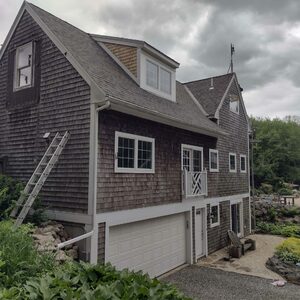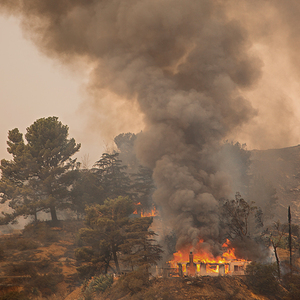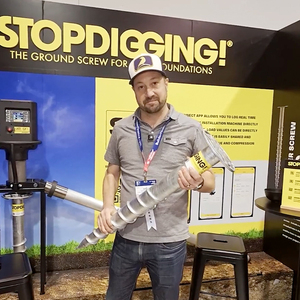I recently purchased a house in the Portland, Oregon area with the idea of renting it out. I do not live in the area currently and due to some last minute delays I was not able to take possession of the house when I closed and was visiting as the previous owners were still in the process of moving.
My during the few weeks of my absence my real estate agent kindly agreed to drop by and check the mail etc. After about three weeks, and with a freezing spell predicted she went in to check that all was well. The thermostat was right at 60, but there was water all over the kitchen and into the dining area.
It appears that the fridge was either moved for cleaning or mistakenly by movers who assumed it went and in the process the copper tubing feeding the icemaker had been broken and leaking since the move out.
There’s no apparent damage to the kitchen floor (tile over plywood) nor to the dining area and hall (5/8 maple floated over ply), but it did trash the insulation and drywall in a bedroom below.
Two trades folks have looked at it and seem to agree that removing the drywall, drying and replacing the insulation, will resolve things downstairs to the tune of a few hundred to a thousand dollars, but they differ on what should be done with the wood floor. One says it is almost dried out already as it was well drained, and once dry should present no problems (he is a former contractor and current home inspector). The other says that there will likely be residual moisture between the wood and the plywood its floated on which is likely to present a mold problem. His recommendation is to replace over 500 sq ft of hardwood flooring in the dining and hall areas to the tune of $10k+!
The floor is beautiful, well cared for otherwise, and only 12 years old, and was not in my plans to change.
So I’m curious what thoughts, ideas, experiences readers here have? As for the mold scenario I also wonder: where would the spores come from that are going to suddenly burst forth; and if it truly is a strong possibility, and water can get in there, isn’t there some form of mold inhibitor that could be injected prophylactically to prevent it, rather than demoing a perfectly good floor? Or…?
Thanks,
David



















Replies
I'm definitely no specialist, but I believe that I have a good load of "technical common sense". Once the water source is shut off, the moisture between the flooring and the plywood will gradually dry up, since wood "breathes". Molds don't thrive in dry areas, so even if they started to grow, they'll die/dry off.
In any case you don't need to rush your decision to spend $10k. If you do have a mold problem 2-3 weeks down the road you'll be able to smell it (literally). My advice: do nothing, but monitor frequently, notice any change. Good luck?
Good advice! -- I'd just add a small fan running in the area to move the air and aid drying.
IanDG
"...but it did trash the insulation and drywall in a bedroom below."
Did this damage include any to the ceiling?? If any of the ceiling below is being removed, I would leave it off for awhile. Maybe check the bottom of the subfloor with a moisture meter.
Rich Beckman
Another day, another tool.